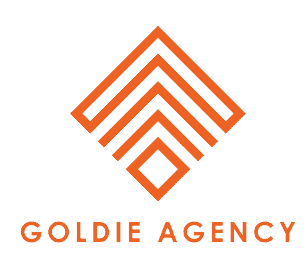The AI search war just went nuclear.
ChatGPT dropped Atlas. Perplexity fired back with Comet.
Both promise to reinvent how we find information online — but only one actually delivers.
By the end of this article, you’ll know which tool wins, which one’s a time-waster, and exactly how to use each for research, writing, or content creation.
Watch the full video breakdown below 👇
🚀 Get a FREE SEO Strategy Session + Discount Now
💡 Join the AI Profit Boardroom to Automate & Scale Your Business
🔥 Join the SEO Elite Circle for More Traffic & Sales
🤖 Need AI Automation Services? Book a Call Here
What Is ChatGPT Atlas?
ChatGPT Atlas is OpenAI’s new search-enabled model built directly into ChatGPT.
It lets ChatGPT search the web in real time, pull in fresh data, and show sources right inside the chat window.
You don’t need plugins or browser extensions — it’s all native.
Just ask your question, and Atlas finds and formats the results automatically.
It’s smooth, integrated, and convenient — but not flawless.
What Is Perplexity Comet?
Perplexity Comet isn’t just a plugin or a tweak — it’s a stand-alone AI model purpose-built for search and research.
Perplexity claims Comet is faster than GPT-4, more accurate, and optimized for handling data-heavy queries.
Unlike Atlas, Comet gives you focus modes:
- Academic papers only
- Reddit and forum discussions
- News & media sources
That alone makes Comet a research powerhouse.
Speed Test: Comet Crushes Atlas
In side-by-side tests, Atlas lagged — taking 10–15 seconds to return even simple results.
Comet answered in 3–5 seconds, consistently.
When every second counts, that’s a massive difference.
The quicker responses also made Comet easier to use on mobile and during rapid brainstorming.
Accuracy & Source Quality
Atlas sometimes cited vague or outdated links.
Comet’s results were more relevant and detailed — pulling top-tier sources that matched each query precisely.
Example:
Ask both to summarize “Google’s Gemini 2.5 features.”
Atlas might cite a single tech blog.
Comet lists verified reports, blog analyses, and press releases — each link clickable next to its related sentence.
Perplexity’s source transparency is next-level.
You can click any sentence in the answer to reveal the exact source.
Atlas lists sources at the bottom — but it’s not always clear which statement comes from which link.
Interface & Ease of Use
Atlas Interface:
Feels exactly like a normal ChatGPT chat. Clean, minimal, but limited.
Comet Interface:
Designed for research — question at the top, related queries on the right, sources organized below.
Perfect if you’re exploring new topics or building reports.
If you value structure and transparency, Comet wins.
If you just want fast, minimal searching inside ChatGPT, Atlas still gets points for convenience.
Focus Modes: A Hidden Superpower
Comet’s focus mode is the feature most people miss.
Before you search, click “Focus,” then choose:
- Academic — for peer-reviewed papers and citations.
- Reddit — for authentic discussions and opinions.
- News — for breaking stories and recent events.
Atlas doesn’t offer this.
It simply searches the web broadly — which can mean more irrelevant or mixed-quality results.
Performance on Mobile
Both have mobile apps, but Comet wins easily.
Atlas often times out or takes too long to load on phones.
Comet loads in seconds — perfect for researchers, journalists, or students on the go.
Pricing Comparison
| Tool | Cost / Month | What You Get |
|---|---|---|
| ChatGPT Plus | $20 | GPT-4 + Atlas access + basic limit caps |
| Perplexity Pro | $20 | Comet model + unlimited searches + extra modes |
Comet offers unlimited searches.
ChatGPT Plus limits GPT-4 and Atlas queries.
If you rely heavily on search volume, Comet gives far more value per dollar.
Accuracy Under Pressure
When tested on complex questions, Comet stayed current, referencing recent updates and live data.
Atlas occasionally missed the latest context or mixed outdated info with new results.
For fast-changing topics like AI releases, markets, or tech news, Comet’s freshness is invaluable.
When to Use Each Tool
Use ChatGPT Atlas when:
- You’re already writing, coding, or brainstorming inside ChatGPT.
- You need a quick fact without leaving your chat.
- Convenience > depth.
Use Perplexity Comet when:
- You’re starting new research from scratch.
- You need multiple verified sources.
- You care about speed, accuracy, and organization.
Best Option:
Use both together.
Research in Comet → copy results → paste into ChatGPT Atlas for writing and ideation.
This combo is unstoppable.
Real-World Workflow
Here’s how I use them every day:
- Comet → Collect data, verify sources, and summarize key points.
- ChatGPT Atlas → Expand on that info, draft outlines, write scripts, or create content ideas.
- Claude or Gemini → Cross-check final outputs.
This triangle gives you both speed and depth without relying on any single tool.
Feature Breakdown Table
| Feature | ChatGPT Atlas | Perplexity Comet |
|---|---|---|
| Real-time Search | ✅ Built in | ✅ Dedicated Model |
| Speed | 10–15 s | 3–5 s (average) |
| Accuracy | Good | Excellent |
| Focus Modes | ❌ | ✅ Academic, Reddit, News |
| Citation Clarity | Partial | Full inline links |
| Interface | Minimal | Structured Research |
| Mobile Performance | Slow | Fast |
| Price / Month | $20 | $20 (unlimited searches) |
Comet wins 6 of 7 categories outright.
Integrations and Updates
Perplexity pushes new features every few weeks:
- Upload PDFs and search inside them.
- Summarize YouTube videos.
- Share search threads publicly.
Atlas, so far, hasn’t added major updates since launch.
If you want innovation speed, Perplexity is moving faster.
Combining Both Tools for Maximum Power
Use Comet to gather knowledge and Atlas to transform it into content.
Example workflow:
- Comet → “Find latest Gemini 3.0 release notes.”
- Copy citations and key data.
- Atlas → “Write a YouTube script based on this data.”
You get the best of both worlds: research precision + creative generation.
Why This Matters for Marketers and Agencies
If you’re doing SEO or content marketing, speed and accuracy are everything.
Chrome DevTools MCP helps debug code — but Comet and Atlas help debug content strategy.
With Comet, you can verify sources before publishing.
With Atlas, you can turn that data into optimized content instantly.
Combine them and you can research, write, and publish 5× faster.
Security and Privacy Notes
Both tools use server-side processing, so always avoid pasting confidential client data.
Perplexity lets you search anonymously if logged out, while ChatGPT requires an account.
If you’re handling sensitive projects, use sandbox sessions or temporary queries.
The Final Verdict
If you want speed and research depth, Perplexity Comet is the clear winner.
If you value workflow convenience, ChatGPT Atlas is still worth keeping handy.
For most users: Comet > Atlas.
For heavy ChatGPT power-users: Atlas + Comet combo = perfection.
Free Resources to Boost Your AI Skills
💥 Get 200+ ChatGPT SEO Prompts + Free SEO Course
📈 Access 50+ Free AI SEO Tools
🚀 Join the Free AI SEO Accelerator Community
🏆 Join the AI Profit Boardroom
Bottom Line:
ChatGPT Atlas vs Perplexity Comet isn’t a tie. Comet wins for speed and accuracy.
Atlas still matters for convenience and integration.
Use both strategically and you’ll never waste time searching again.





